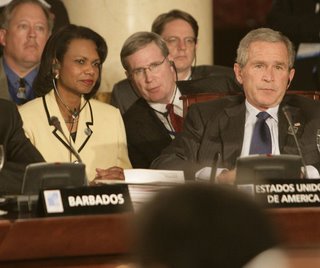IDF Raids: Who Wants War?
 Right: Historic Baalbek Area
Right: Historic Baalbek AreaOn the 6th day of the truce, Israeli commandos raid Lebanon villages in the first major breach of a ceasefire setforth by United Nations Security Council Resolution 1701.
 Israeli commandos raided a number of villages early Saturday, August 19, 2006, in eastern Lebanon, where they clashed with Hizballah fighters, Lebanese military and Hizballah spokesmen announced. The report came as a fragile United Nations-brokered ceasefire, being monitored by a United Nations Interim Force In Lebanon (UNIFIL), with the help of the Lebanesee Army, entered its sixth day.
Israeli commandos raided a number of villages early Saturday, August 19, 2006, in eastern Lebanon, where they clashed with Hizballah fighters, Lebanese military and Hizballah spokesmen announced. The report came as a fragile United Nations-brokered ceasefire, being monitored by a United Nations Interim Force In Lebanon (UNIFIL), with the help of the Lebanesee Army, entered its sixth day.The operational maneuver entailed diversions. The attacks took place under the cover of peripheral bombings in mock raids by Israeli jets.
Meanwhile, several helicopters landed troops and two Hummer vehicles in the mountainous region of Afqa, about 30 kilometers (18 miles) east of Baalbek, the Lebanese military source said.
Israeli forces then drove eastward to the nearby village of Buday where they clashed with Hizballah soldiers.
The Israeli soldiers attacked a school in Buday, as helicopter gunships strafed the area with machine-gun fire and warplanes bombarded Hizballah positions in the area.
Two helicopters came back blazing fire to provide ample cover in order to retrieve the Hummers and the commandos safely out the area and headed back out. The Israeli soldiers left six large pools of blood at various locations in the aftermath.
The Israeli army would neither confirm nor deny the attacks, but a Hizballah spokesman did confirm it. Claiming the Israelis had tried in vain to take the school, he said "we forced them to retreat after inflicting losses on them."
 It was the first major breach to the UN-brokered ceasefire deal that put an end to month-long hostilities between Israel and Hizballah early Monday.
It was the first major breach to the UN-brokered ceasefire deal that put an end to month-long hostilities between Israel and Hizballah early Monday.Earlier this week, there were exchanges of fire in skirmishes between Hizballah and Israeli forces in the border area that left at least four Hizballah soldiers dead. Hizballah also fired missiles in the direction of Israeli troops, but no one was hurt. The volley of rockets were inside Lebanon territory and didn't cross the border into Israel. The UN was able to quickly, stabilize the situation and the ceasefire held.
Israeli aircraft repeatedly violated Lebanese airspace on Thursday August 17, when a few Lebanese shepherds and about 100 sheep strayed into a disputed border area. Israel's border with Lebanon has never been set. The UN declared an international blue line after the Israeli war of Independence in 1949. Israel and lebanon have never signed a peace treaty, an armistice still stands.
Sources:Zedo.com article
Reuters article
 Left: President George W. Bush, Secretary of State Condoleezza Rice and National Security Council Advisor Steve Hadley
Left: President George W. Bush, Secretary of State Condoleezza Rice and National Security Council Advisor Steve Hadley Who really wants war?
National Security Adviser Stephen Hadley, set the criteria for peace at President Bush's Crawford, Texas ranch where Secretary Rice was also visiting. At the time the US and France settled their differences and finally, agreed upon the language of a UNSC resolution that both Israel and Lebanon could also accept.
Hadley clarified during a press conference saying "I think it's interesting if you have a situation where the international community is calling for a full cessation of hostilities supported by the Lebanese government -- it was supported by the Israeli government, and Hizballah says no, that will tell you something about who wants peace and who does not, and that will be a clarifying moment."
 However, shortly thereafter, the Lebanese government confirmed that Hizballah consented to the ceasefire terms.
However, shortly thereafter, the Lebanese government confirmed that Hizballah consented to the ceasefire terms.US Secretary of State Condoleezza Rice also, said assenting to the UNSC resolution would show "who wants peace and who wants war." Those who agree, want peace. Hizballah and others who reject this plan want war."
Gulfnews article
New York Sun article
 UN Security Council Resolution 1701 calls for Hizballah to cease all attacks and for Israel to cease all offensive military operations. Israel justified its entire war on Lebanon as a 'defensive' war. Therefore, the vague and disparaging language chosen by the drafters was perplexing. In search of clarity, at a whitehouse press conference, a reporter pressed Hadley for a clear definition of what exactly, would constitute a breach of the cease fire on Israel's part. The text was quite fixed on Hizballah's responsibilities.
UN Security Council Resolution 1701 calls for Hizballah to cease all attacks and for Israel to cease all offensive military operations. Israel justified its entire war on Lebanon as a 'defensive' war. Therefore, the vague and disparaging language chosen by the drafters was perplexing. In search of clarity, at a whitehouse press conference, a reporter pressed Hadley for a clear definition of what exactly, would constitute a breach of the cease fire on Israel's part. The text was quite fixed on Hizballah's responsibilities. Question -- Can you describe anything that Israel has done so far in this war as being offensive -- that they've been doing [in Lebanon?] Or has this all been defensive, right?Well, according to Hadley's explication of the administration's parameters for who would want war, we now, know who wants peace. Israel is totally, out of control drunken by its high-tech weaponry. They've made a mess of the situation in Lebanon from the onset. The border skirmish could have been handled with moderation and according to settled international custom and law. International law does not view border incidents as acts of war.
MR. HADLEY: Well, when people talk about offensive military actions they would be thinking about the air strikes that have occurred out of the southern area, and they would be thinking about the military operations that the ground forces have been undertaking. Those, I think, would be, in common parlance, viewed as offensive military operation.
There are incursions on many borders around the world. For instance, the borders of India and Pakistan, North Korea and South Korea as well as, Turkey and Iraq have all recently, suffered border clashes. Nevertheless, those States do not go around bombing and destroying entire countries as a result of these annoying yet, mild events. Imagine how many more wars there would be if each such occurrence was interpreted as a declaration of war.
But, not Israel, they do it their way, because they are special. They sought instead to proceed with a war, which would set a certain level of "awareness" in Lebanon, and elsewhere in the Islamic world, i.e., let them know who rules. The war was mostly, about establishing the invincibility of the IDF and the deterrent power therefrom, once again.
 Well, once France was able to push through resollution 1701, which establishing the ceasefire they seem to have washed their hands of the situation. France will not bail out the US or Israel. This is clear since, France only offered 200 troops instead of the much anticipated 3,500 soldiers and officers. France and the EU called for an immediate ceasefire, but Britain and the US wanted to give Israel more time to destroy Hizballah. France and the EU may not say I told you so, but they will take the same course they followed in the 2003 Iraq fiasco -- staying clear of this cleanup operations too.
Well, once France was able to push through resollution 1701, which establishing the ceasefire they seem to have washed their hands of the situation. France will not bail out the US or Israel. This is clear since, France only offered 200 troops instead of the much anticipated 3,500 soldiers and officers. France and the EU called for an immediate ceasefire, but Britain and the US wanted to give Israel more time to destroy Hizballah. France and the EU may not say I told you so, but they will take the same course they followed in the 2003 Iraq fiasco -- staying clear of this cleanup operations too.Both, the US and Israel were hoping for an international force to mop up, disarm Hizballah and implement an arms embargo at the airports, at seaports and on the Syrian-Lebanese border. As that scenario becomes more remote, Israel may have contemplated that this latest show of determination [desperation] might just be the trick to make "aware" and bring on board those ever elusive international forces. The US is in a precarious position and can't risk being viewed as an overt enforcer of Israeli wishes, because it would further damage US credibility and interests in the region. The US must also grapple with the 1983 Beirut suicide bomb that killed 241 marines, 58 French soldiers were also killed a few minutes later at their headquarters.
 On the other hand, Prime Minister Tony Blair, does not have the domestic political capital in Britain to come to the rescue this time either. It is improbable that the US will be able to pull together a coalition of the sniveling on short notice. The participants certainly, would not want to pay for the affair. Most likely however, Israel and the US will have to clean up their own mess politically, and otherwise. But at least, according to definitive US parameters, it is now known who wants peace and who wants war.
On the other hand, Prime Minister Tony Blair, does not have the domestic political capital in Britain to come to the rescue this time either. It is improbable that the US will be able to pull together a coalition of the sniveling on short notice. The participants certainly, would not want to pay for the affair. Most likely however, Israel and the US will have to clean up their own mess politically, and otherwise. But at least, according to definitive US parameters, it is now known who wants peace and who wants war.

0 Comments:
Post a Comment
<< Home